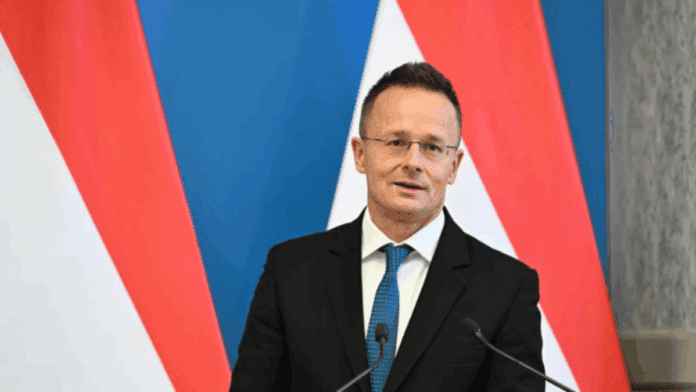Hungarian Foreign Minister Péter Szijjártó announced that the United States has lifted sanctions that were previously blocking the construction of Hungary’s Paks II nuclear power plant. These sanctions, introduced during Joe Biden’s presidency, had posed major challenges to Hungary’s energy plans.
Speaking on June 29, Szijjártó said the change came after Donald Trump returned to the White House. He credited Trump for the reversal and called it a clear sign of renewed friendship between the two countries. “In light of the fact that there is now a president in Washington who considers Hungary a friend, the American government has lifted sanctions related to investments in the Paks nuclear power plant,” said Szijjártó.
The U.S. sanctions had made it harder for Hungary to proceed with the expansion of its only nuclear power facility. Now, with the restrictions removed, Hungary can push forward with the project—developed in partnership with Russia—without facing American penalties.
What Is Paks II and Why It’s Controversial
The Paks nuclear power plant, located around 100 kilometers south of Budapest, is Hungary’s only nuclear facility. It has four reactors built in the Soviet era between 1982 and 1987. These reactors provide more than 40% of Hungary’s electricity.
Hungary plans to add two new VVER-1200 reactors to the site under the Paks II project. The construction is being managed by Rosatom, Russia’s state nuclear energy company. The deal to build the new units was signed in 2014, not long after Russia annexed Crimea.
The project is mostly funded by a Russian state loan, deepening Hungary’s financial and energy ties with Moscow. Despite Russia’s full-scale invasion of Ukraine in 2022, the Hungarian government has remained committed to the project. In August 2022, Hungary granted the construction permit for Paks II. The following year, Rosatom CEO Alexey Likhachev visited Budapest to discuss the project’s next steps with Hungarian leaders.
Hungary has also opposed any attempts within the European Union to sanction Russia’s nuclear industry. Hungarian officials have repeatedly stressed that nuclear power is essential to ensuring the country’s energy security and reducing reliance on fossil fuels.
United States Imposes Sanctions on China-Iran Tech Network Supplying Nuclear Weapon Machinery
Rising Tensions Over Energy Security
Hungary’s relationship with Russia over energy has caused friction, especially with Ukraine. On March 11, a Ukrainian drone strike hit the Druzhba pipeline, which carries Russian oil to Hungary and other countries in Europe. The incident forced a temporary halt in oil deliveries.
Péter Szijjártó condemned the strike, calling it an “attack on Hungary’s sovereignty.” He said that such actions not only harm Hungary’s economy but also pose a direct threat to the country’s energy stability.
By lifting the sanctions, the U.S. under President Trump has removed a major obstacle to Hungary’s long-term energy plans. According to Hungarian officials, this decision supports the country’s strategy to rely more on nuclear energy and protect itself from unstable global energy markets.
